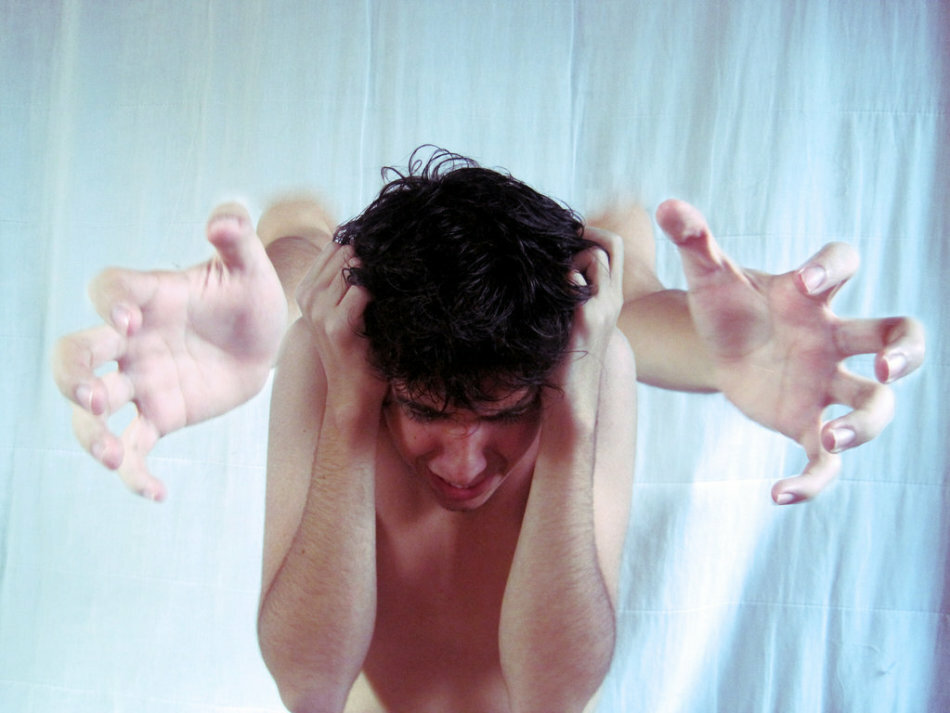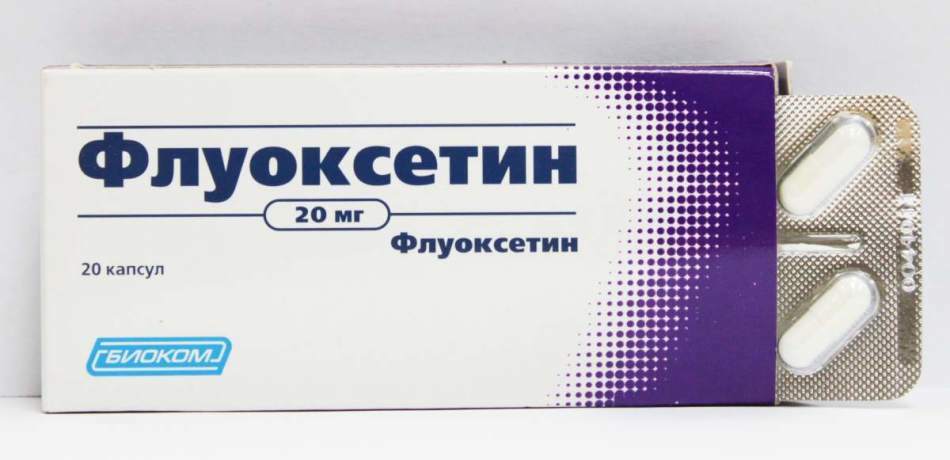Anhdonia is the inability to enjoy life. This condition can be changed independently or with the help of special drugs - antidepressants.
Contents of
- In what diseases does anhedonia often appear?
- How are paranoia, depression, schizophrenia and anhedonia related to each other?
- Anhdonia social, sexual, orgasmic, from neuroleptics: causes and symptoms
- Test for the identification of anhedonia
- Treatment of anhedonia at home
- Anhdonia and how to deal with it: antidepressants
- Anhedonia: testimonials
- Video: How to allow yourself joy? Angedonia. Psychotherapy
The state of the anhedonia is characterized by complete or partial loss of the ability to have fun and enjoy life .A person has lost interest in what is happening, his activity is noticeably reduced, his favorite pursuits and hobbies do not bring any satisfaction.
IMPORTANT: The signs of anhedonia can not be ignored, as this condition is abnormal for the psyche and is subject to medical correction.
 Anhdonia - lack of pleasure and pleasure
Anhdonia - lack of pleasure and pleasure In what diseases is an anhedonia often manifested?
Anhdonia itself is extremely rare. In most cases, a bleak existence is the result of a disease. Most often, anhedonia persecutes people with:
- schizophrenia
- post-traumatic psychiatric disorders
- personality disorder
- depression
IMPORTANT: All these diseases are characterized by a disconnection in the brain of the center of pleasure, which leads to the inability to feel satisfaction.
 Anhedonia - a symptom of schizophrenia
Anhedonia - a symptom of schizophrenia How are paranoia, depression, schizophrenia and anhedonia related?
According to psychiatrists, anhedonia is the earliest manifestation of schizophrenia .
IMPORTANT: 75% of patients with schizophrenia suffer from a pronounced anhedonia.
However, the loss of the ability to experience pleasure can be a symptom of other diseases and somatic disorders.
Schizophrenic anhedonia can be recognized by the following features:
- inability of the patient to express emotions
- lack of expression
- lack of gesture
- lethargy
- lack of interest in conversations
- emotionlessness of voice
Schizophrenia is considered progressing if paranoia is added to time after complete absence of contentment - suspicion, pathological jealousy, a tendency to see enemies around him, attempts to find conspiracies against himi.
IMPORTANT: In schizophrenia, anhedonia and paranoia can become aggravated and subside. At times the patient can return to normal life. But it does not last long. From the real world, the schizophrenic is again plunged into his own bleak, emotionless existence, where, in his opinion, dangers are at every step.
Angidonia also acts as one of the first signs and main symptoms of the depression of the .In this case, it manifests itself softer and is limited by the patient's reluctance to communicate with friends and engage in favorite activities.
 Angodonia turning into paranoia is a sign of the progression of schizophrenia
Angodonia turning into paranoia is a sign of the progression of schizophrenia An example of the manifestation of anhedonia in women's depression : A woman was fond of knitting and was enjoying this process. I also tried not to miss the next episode of my favorite TV series. During the depression, she can not force herself to sit down for knitting, and her favorite film is no longer interesting.
Pediatric anhedonia in depression: A boy of 8 years old, well studied, loved to attend wrestling and wrestling on the street with a friend. With the onset of depression and the appearance of the anhedonia, school performance has decreased markedly, is reluctant to workout or tries to miss training, interest in games and communication with a friend has disappeared.
Anhdonia social, sexual, orgasmic, from neuroleptics: causes and symptoms
Anthony is an insidious and multifaceted mental disorder. Failure to have fun can affect certain areas of life and absolutely not manifest in others( partial anhedonia).
So, for example, after ceasing to rejoice in intimacy with a partner, the patient begins to look for reasons in himself or a close person, without even knowing about the development of anhedonia.
Identify such forms of anhedonia:
- Social - loss of interest in communicating with friends and loved ones, indifference to encouragement and praise. Complicated by the lack of a desire for career growth, the acquisition of new things, the improvement of living conditions. The reason for the development of social anhedonia can be insufficient socioeconomic and educational level of the patient.
- Sexual - complete lack of pleasure from sexual contacts, regardless of the changing circumstances of sex and partner. It can be a sign of a depressed state.
- Orgasmic - lack of pleasure in the moment of orgasm. Physiologically, the orgasm is present, but it does not bring satisfaction to the patient. Orgasmic anhedonia can be a consequence of feelings of guilt due to a sense of pleasure. It is necessary to consult a doctor-sex therapist.
- Neuroleptic - develops against the background of taking antipsychotics. Dulling of the senses is due to the action of drugs aimed at suppressing dopomin - a substance that transmits nerve impulses in the brain cells.
- Aesthetic - lack of pleasure from doing what you love, hobby. A person with aesthetic anhedonia always has a bad mood. He feels dissatisfied with his own life, but does not try to change anything.
IMPORTANT: If anhedonia affects all areas of a patient's life, it is called total.
 Sexual anhedonia
Sexual anhedonia The test for the identification of the anhedonia
To reveal the anhedonia is very important, as it is progressing, this state is able to turn the life of any person into a real nightmare. If, however, in time to deal with treatment and eliminate the cause of this mental deviation, the life of the patient gradually return to bright colors.
In order to understand if you have an anhedonia, you can pass an online test, the results of which will confirm or deny your suspicions.
Also the presence of anhedonia is revealed at a psychologist's reception. The specialist asks the patient a number of questions about his life, communication with family and friends, participation in various social events, visits to cinemas and concerts.
 Definition of anhedonia at the reception of the therapist
Definition of anhedonia at the reception of the therapist Treatment of anhedonia at home
Treatment of anhedonia at home is almost impossible. This is due to the fact that in most cases, anhedonia is not a separate disease, but a symptom of a complex mental disorder, which should be treated by a specialist. If the treatment is successful, the anhedonia will pass by itself.
However, a person experiencing a deficit of joyful feelings is able to independently carry out activities aimed at combating anhedonia:
- Eat enough fresh fruit and chocolate, which are the source of serotonin.
- Regularly eat, including in your diet such products: mushrooms, beans, cottage cheese, buckwheat, bananas, cheese, millet.
- Attend sports hall, swimming pool - during the physical exercises there is a powerful production of serotonin.
- Independently to create to itself pleasant situations, to please itself even with trifles, thus artificially stimulating the development of serotonin.
- Daily walk in the open air for at least 2 hours.
IMPORTANT: If you can not change the situation on your own, you should not postpone your visit to a therapist. The specialist will prescribe medication and will carry out a psychotherapeutic correction.
 Active sports will help to defeat the anhedonia
Active sports will help to defeat the anhedonia Andonia and how to deal with it: antidepressants
For the treatment of anhedonia, antidepressants of different action can be prescribed:
- Tricyclics( Azafen, Clomipramine( anafranil), Amitriptyline, Imipramine( melipramine, tophranil) - increase the content of noradrenaline and serotonin in the brain. -- Significant improvement in the patient's condition occurs after 2-3 months of admission, and onset in 2-3 weeksHave serious side effects, an overdose can lead to death
- Inhibitory( Bethol, Inkazan, Moclobemide) is prescribed if the course of tricyclic antidepressants does not bring relief.and inhibits norepinephrine and serotonin
- Selective serotonin reuptake inhibitors( fluoxetine, citalopram, paroxetiline, sertraline, fluvoxamine, escitalopram) - stimulate brain supply with serotonin, blocking its re-uptake. New generation drugs, have a minimum of side effects.
Melatoninergicantidepressant( Agomelatin( Melitor)) - the most modern drug, which simultaneously affects several receptors that regulate biological rhythms in the human body. Already after 7 days of Melitor's use, patients notice a normalization of sleep and appetite, an increase in working capacity and a decrease in anxiety.
IMPORTANT: Medication of anhedonia is possible only under the supervision of a physician. Independent selection and use of an antidepressant is unacceptable.
 Fluoxetine - for the treatment of anhedonia
Fluoxetine - for the treatment of anhedonia Additionally can be assigned:
- tranquilizers ( Fenazepam, diazepam, chlordiazepoxide)
- neuroleptics ( aripiprazole, ziprasidone, quetiapine)
- nootropics ( Nootropil, Phenotropil, Cereton)
- hypnotics ( Eunoktin, Trypsidan, Nott, Iwadal, Brominated)
- vitamin "B"
Angonia: reviews
Olga, 26 years old : "My fortune is driving me into a corner. Besides that I can not feel joy and satisfaction, I live with constant fears. I'm afraid to go out on the street, it's scary to travel in public transport, I'm afraid to go to the shops and talk with people. I take antipsychotics and antidepressants according to the doctor's prescription. By the way, doctors note the improvement of the condition, but I do not think so. I remember my past life, in which there were friends, work, travel and there was no fear, and crying. It seemed to me that this will always be so. But the disease has deprived me of the right to a normal existence and the opportunity to enjoy life »
 Anhdonia - loss of interest in life
Anhdonia - loss of interest in life Svetlana, 32 years old :" For several years now I have not experienced the pleasures happening in life. For the first time drew attention to the lack of joy after buying a new phone, which has long dreamed of. I held in my hands the treasured box and with surprise noticed that I do not care at all. As it turned out later, the anhedonia developed against a background of depression. At the moment I am taking antidepressant medication. "
Artem, 45 years old :" I was so tired at work that I stopped noticing pleasant moments of my life and enjoying them. When I realized that I was turning into a boring, cheerless person, I decided that I needed to change my life urgently. I began to rest more, walk on foot, got a dog, began to visit the gym and work less. Gradually, life was normal. The joy and sense of satisfaction came back to her. "
